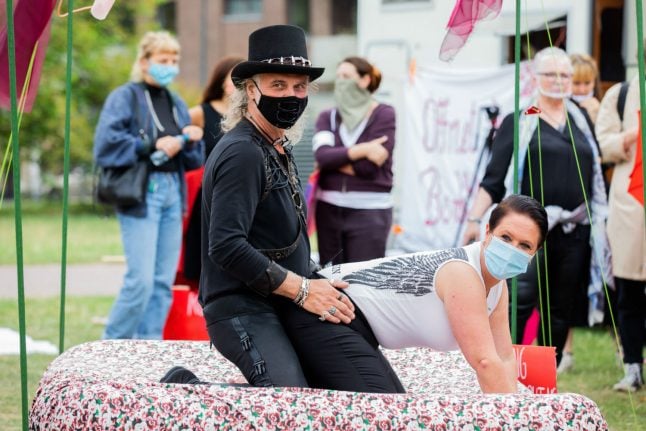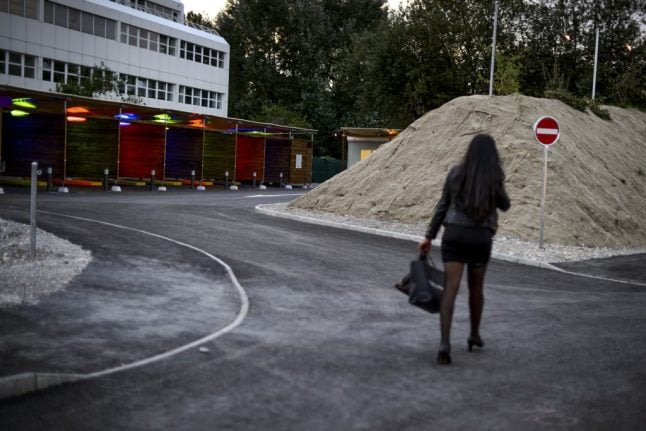Prostitutes can return to work in Germany's most populous state of North Rhine-Westphalia with immediate effect.
Meanwhile, four north German states will also lift their bans shortly. Brothels in Hamburg, Bremen, Lower Saxony and Schleswig-Holstein can resume operations as of September 15th.
The ban on prostitution issued in the wake of the coronavirus crisis was overturned on Tuesday, after a ruling by the North Rhine-Westphalia Higher Administrative Court in Münster.
Many sex workers have suffered a huge loss of income due to the ban. The precarious financial situation of the industry as a whole became apparent last week when one of Europe's biggest brothels Pascha, in Cologne, filed for bankruptcy.
There have been several protests throughout the country as sex workers have called for brothels to open their doors.
SEE ALSO: Sex workers protest in Berlin as coronavirus keeps brothels shut
Face mask rules and ban on alcohol
Strict rules will have to be put in place in order for the facilities to reopen.
Brothels have to present authorities with a hygiene and safety concept, face masks must be worn at all times and there's a ban on alcohol.
The practice of prostitution in vehicles and at events remains prohibited.
The court in Münster said that a complete ban violated the principle of proportionality and it had to be overturned.
They said the danger of passing on the virus in a brothel likely also existed in other contexts that have already been allowed by governments.
As an example, the court cited fitness studios which are allowed to open and also involve increased breathing activity.
It's also not clear proven that the risk of infection is significantly higher during sexual acts between two people than at private parties with up to 150 people, the court said.
With sexual services risks can therefore be reduced with protective measures. According to the court, the ban on sexual services must be suspended in its entirety for the time being, and the decision cannot be appealed.
In Berlin, sex work was partially permitted again in August. And since September 1st, sexual services involving physical contact has also been allowed. In other states, brothels are still closed.



 Please whitelist us to continue reading.
Please whitelist us to continue reading.
Member comments